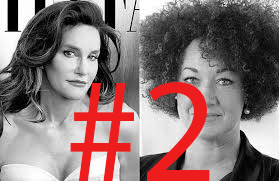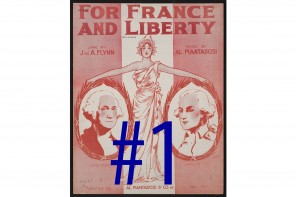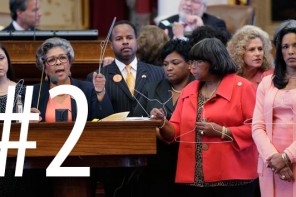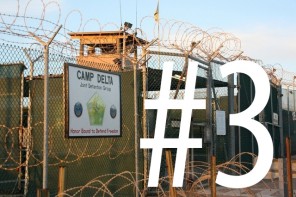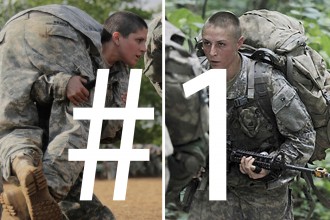Two weeks ago we welcomed Caitlyn Jenner to the world of womanhood, so why is Rachel Dolezal hung out to dry? In our second pick this week, we consider the difference between racial labels and gender labels. It would seem our struggles to find equality with regards to gender are much farther along than our constructs and divisions surrounding race identity.
“Coming on the heels of Bruce Jenner’s announcement that he identifies as a woman, and will answer henceforth to ‘Caitlyn,’ the story of Ms Dolezal and her personal “truth” has been the source of both consternation and confusion.”
“That said, it is both possible and necessary to separate the issue of Ms Dolezal’s deceptive mode of operation from the question of the coherence and moral acceptability of tranracialism. I am very happy to celebrate the self-expressive ethos embodied by Caitlyn Jenner. The objectionable peculiarities of Ms Dolezal’s case aside, why not celebrate self-expressive racial identification?”
“It seems to me that Smith’s [College] brand-new willingness to accept transgendered students is a measure of progress in the struggle for gender equality. It tells us that the gap between the lived experience of women and men has narrowed enough that today’s students at women’s colleges do not see the experience of someone who is biologically male, and who was once culturally identified as male, as so different that she cannot be accepted as a woman among women. Likewise, the breadth and intensity of resistance to the idea of whites identifying as blacks is a measure of how far we still have to go in the struggle for real racial equality. The gap between the lived experience of black and white Americans remains so wide, and so unjust, that the attempt of whites to cross the racial divide, and to live as blacks do, seems impossible. It is offensive for a white American to represent herself as black, for now, because it diminishes the enormity of that gap by implying that it has, in fact, been crossed.”
“Rachel Dolezal knew she needed to lie to be accepted as black. That’s not something we ought to be happy about. When the day comes that future Rachel Dolezals can tell the truth about their European ancestry and find themselves nevertheless embraced as black by the black community, it will mean that the experience of being black in America has changed immensely, for the better, and that America has finally begun to make good on a promise of equality which, from its inception up to today, has never yet been kept.”
“What’s key is that you can’t choose your position in the hierarchy. The political designation of race is a function of power—or, put differently, you are whatever the dominant group says you are. A Nigerian immigrant might not identify with black Americans, but she’s still ‘black,’ regardless of what she says, and if she gets pulled over by the police, that identity will matter most. And on the other end, a black American with dark skin and African features could identify as white with her friends, but in society, she’s black, regardless of how she feels.”
“To belong to the black community is to inherit a rich and important culture; to be racially black is to face discrimination and violence. And that has often gone for whites who identify with blacks, or for blacks who appear to be white. When investigating a lynching in Arkansas, White had to flee when locals learned he was a black man ‘masquerading’ as a white one. Viola Liuzzo, a civil rights activist, was shot dead by Klansmen for assisting other activists. She was white.”
Couldn’t we make the same argument for women? Women face discrimination and hardship, when a transgender male wants to become a woman we don’t tell them they cannot pass as a woman because they have not know the hardship women face on a daily basis.
If gender and race are social constructs, ones we find cause lots of unrest and violence in our society, maybe we should be less rigid about these identifiers. Categorizing people is human nature, it’s a means to identify and bond, but it is a primitive need and one we would benefit from moving beyond.


